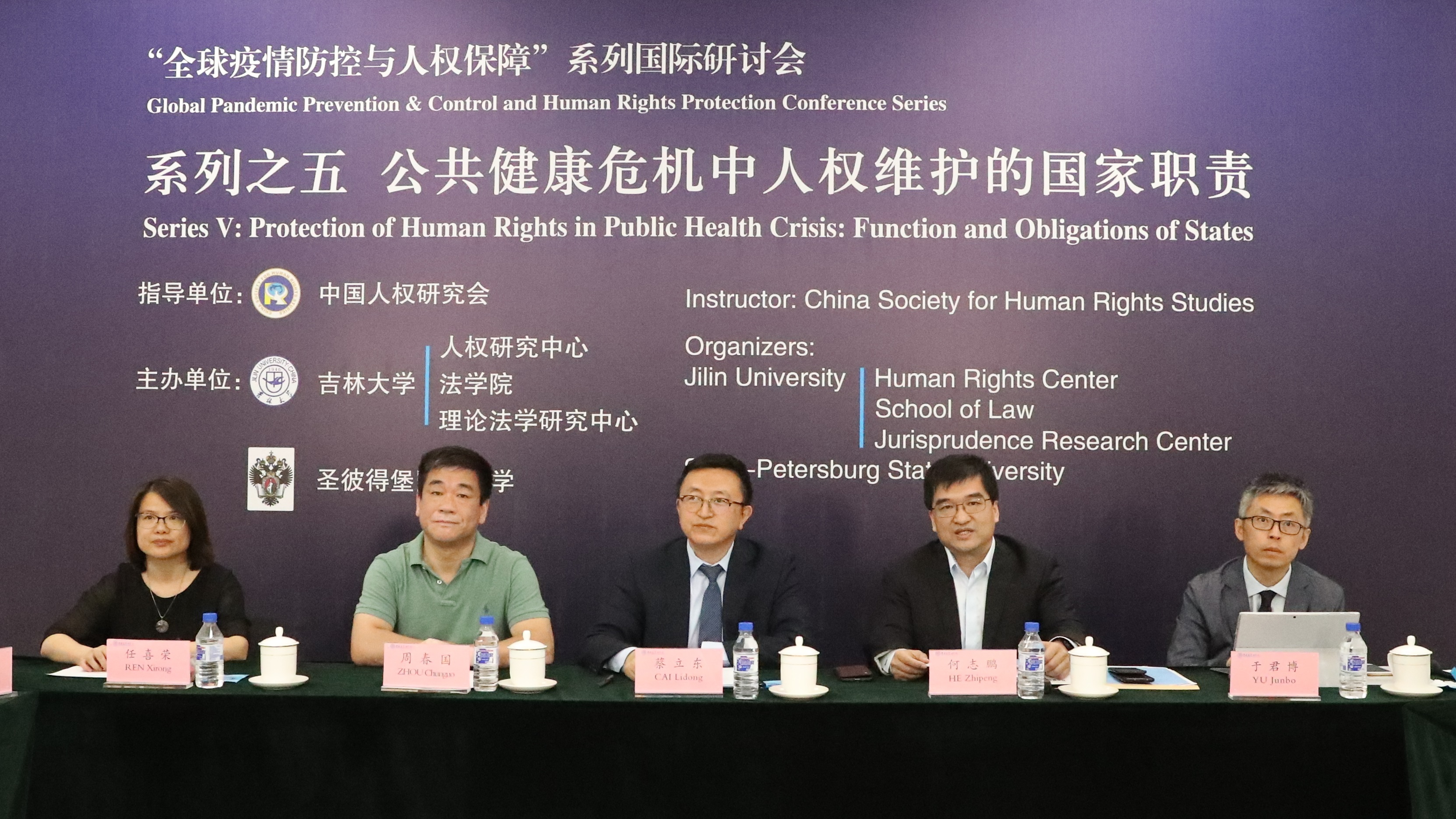
An online forum with the theme of "protection of human rights in public health crisis" is held in Changchun, Jilin Province. Guan Yang/CGTN
An online forum with the theme of "protection of human rights in public health crisis" is held in Changchun, Jilin Province. Guan Yang/CGTN
This week, an online forum with the theme of "protection of human rights in public health crisis" kick-started at Jilin University, where several experts have shared their thoughts with the common understanding that COVID-19 is much more than a health crisis, it is a human, economic and social crisis, and the protection of human rights in such public health crises requires all countries to adopt a more cooperative, global and human rights-based approach to the pandemic.
Prof. Yu Junbo from Jilin University raised the subject "how has people's movement changed under the pandemic." He pointed out that older persons were particularly susceptible to the risk of infection from COVID-19, like those with chronic health conditions. Older persons are not just struggling with greater health risks but are also likely to be less capable of supporting themselves in isolation. Although social distancing is necessary to reduce the spread of the disease, if not implemented correctly such measures can lead to increased social isolation of older persons at a time when they may be at most need of support.
Prof. Alexander Zezekalo from Saint-Petersburg State University pointed out that the implementation of new technology while imposing anti-pandemic measures may have brought legal and ethical issues. The big data technology was used to monitor people's movements, which made the epidemic prevention and control more efficient, however it has also resulted in a certain negative impact on people's privacy. Therefore, with the continuous development of new technologies, a proper balance should be maintained between individual's rights and public interests.
Prof. Wang Jiangyu from City University of Hong Kong said governments from different countries had announced large and wide-ranging packages of financial measures to try to cushion the effect on people and businesses. The fall in economic activity was in large part due to deliberate government policy, rather than an external shock the governments were trying to mitigate. The aims of these packages were therefore two-fold "to help people in the short term, and to help the economy gear up again quickly when the restrictions are lifted."
Prof. Fozia Nazia Lone, also from the City University of Hong Kong, noted that China adopted extensive, stringent, and thorough containment measures, and has for now succeeded in cutting the channels for the transmission of the virus, adding that 1.4 billion Chinese people had exhibited enormous and solidarity in erecting a defensive rampart that demonstrated their power in the face of the pandemic. The concept of "community of shared future for mankind" advocated by the Chinese government would play a more active role in the field of international health cooperation.